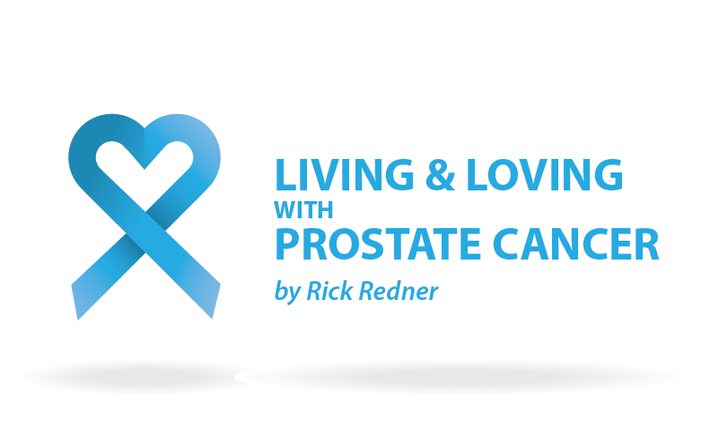Seven years after my robotic prostate surgery, I’m still coping with climacturia, which is defined as leaking urine during an orgasm. I leak substantial amounts of urine before and during my orgasms.
Using the restroom prior to engaging in sex lessens the volume of urine but won’t prevent leaks.
Recently, my wife and I had a spontaneous sexual encounter — as spontaneous as you can be when it’s necessary to pump up your implant to get an erection.
I neglected to put a towel on our mattress. By the time we were finished, our sheet and blanket were soaked with urine.
Our afterglow consisted of taking the sheet and blanket off the bed, heading downstairs, and placing both items into the washing machine. It was not the afterglow I’d anticipated.
For me, it was an anti-afterglow experience. I was so angry that in my mind’s eye, I was shaking my fist toward the heavens shouting: “I HATE CANCER!”
I’m aware that many folks coping with devastating and debilitating effects of cancer would gladly change places with me, but that isn’t a productive way to understand the suffering of other people.
A tendency to compare our suffering to the suffering of others often reduces our capacity for empathy. The act of comparing turns our focus inward to our own suffering, rather than outward to understand the suffering of another person.
Our comparison leaves us feeling either blessed or cursed.
I prefer to think about the points of commonality we share as cancer survivors. The majority of us live with a host of unwanted changes we hate because of treating our cancer.
I needed to take the time to process my anger, my frustration and my hatred for all the things cancer has taken away from me and my marriage.
In this phase, it’s important to allow yourself to experience the intensity of all your emotions.
The danger in this phase involves getting stuck here. It’s an unhealthy place to unpack your bags and decide consciously or by default to live here for the rest of your life. Anger and bitterness leak into every relationship. It’s as toxic as cancer.
If you are committed to personal growth and change, you can ask yourself, “What can I learn from this experience?” You’ll also ask your partner about thoughts and feelings.
If you are a person of faith, ask yourself a second question: “What is it that God would have me learn about me, about Him, and our relationship with each other?” I highly recommend reading “Don’t Waste Your Cancer,” by John Piper.
As a clinician, I was taught that anger is a secondary emotion fueled by another emotion. I needed to dig deeper to find the fuel. The results of my dig surprised me.
My fuel was a profound sense of sadness about all the unwanted changes that my wife and I have endured since my diagnosis of prostate cancer.
At the beginning of our journey, we both were overwhelmed by the losses and our reactions to those losses. We were overwhelmed by our negativity. The frequency and intensity of our fighting threatened our marriage. We went into counseling.
Jim Henman, a therapist in Modesto, California, taught us that we live our lives with moments of “got it, got it … ain’t got it … .”
That describes the state of my acceptance of my cancer-related losses. The anti-glow in my bedroom brought me to a place where “I ain’t got it.”
The “ain’t got it” is a signal I need to speak to myself and my wife in kind, graceful, loving, non-judging, respectful ways. Once you learn to speak to yourself in this manner, you have the ability to speak to others when they experience an “ain’t got it.”
All of us need skills coping with loss, since the journey of cancer survivorship begins and ends with loss. The first loss is huge. Your relationships with healthy friends and family shift.
This is inevitable because you’ve exited the world composed of healthy folks and entered into a world they won’t understand.
You’ve entered a war zone, where the enemy is cancer. Your world is composed of doctors’ appointments, hospitalizations, various forms of treatment and unpleasant side effects.
I came across a poster that reflected this reality. It read: “Cancer turns family into strangers and strangers into family.” Turning strangers into family is a process that requires intent, effort and taking risks.
I’ve discovered the path forward to accepting my new cancer-related normal involves me joining a community of cancer survivors who can help me grieve my cancer-related losses.
I’ve also learned that my acceptance of my losses involves a “got it, got it … ain’t got it” process.
***
Note: Prostate Cancer News Today is strictly a news and information website about the disease. It does not provide medical advice, diagnosis, or treatment. This content is not intended to be a substitute for professional medical advice, diagnosis, or treatment. Always seek the advice of your physician or other qualified health provider with any questions you may have regarding a medical condition. Never disregard professional medical advice or delay in seeking it because of something you have read on this website. The opinions expressed in this column are not those of Prostate Cancer News Today, or its parent company, BioNews Services, and are intended to spark discussion about issues pertaining to prostate cancer.



Hang in there Rick you are providing information that is helping men everywhere! Thank you
The complications of the various treatments in a curative attempt of prostate cancer (PC) are rarely discussed in “full”. And one of the areas of greatest neglect is the lack of information provided to men and their significant others as to the effect of any ablative procedure (e.g., RP of any kind, RT, brachy, HIFU, Cryo) on the quality/nature of orgasm post-procedure. This flaw in “informed” consent is universal, and not specific to any one country or medical institution. In my 35 years of working with thousands of men with PC, a major factor is the artistry or skill of the treating physician–no matter what the specialty. A dear friend of mine, Lloyd Ney, who started the first PC support group called PAACT, had a great quote for this:
“If you want first-class oats, you go to the head of the horse.” Lloyd Ney
With the above said, I would advise you to do you due diligence and review the peer-reviewed literature on climacturia. There are physicians who are focused on this and there are now papers in 2017 that focus on climacturia. I found 10 papers published on this topic in 2016-17. One that I have just ordered is:
Mendez MH, Sexton SJ, Lentz AC: Contemporary Review of Male and Female Climacturia and Urinary Leakage During Sexual Activities. Sex Med Rev, 2017.
The corresponding author is Aaron Lentz from Duke University. You may wish to interact with Dr. Lentz via the contact info below:
Division of Urologic Surgery, Department of Surgery, Duke University Medical Center, Durham, NC, USA.
Division of Urologic Surgery, Department of Surgery, Duke University Medical Center, Durham, NC, USA. Electronic address: [email protected].
If anyone reading this blog is lucky enough to meet or be treated by Dr. Strum count yourself as being quite fortunate. After the death of my Father and recovery of my Brother from prostate cancer I attended many meetings of the Prostate Cancer Research Center PCRI in Los Angeles which was founded by Dr. Strum. He was kind enough to answer some of my emails as I began my studies on the subject. He is one of the very few practitioners that has a 365 degree comprehensive view of the disease and all its treatments.
I appreciate Larry Glickman’s very kind remarks. The true profession of medicine to the practitioner that practices it with the full passion of both heart and mind is beyond description. I call it “instant intimacy” and it may be unique to the context of life-threatening disease. Such a relationship embraces humanity (i.e., a contraction of the words human and unity) and brings to my mind the perspective of universe as uni (one) verse (story). When this is looked at with open mind– the beginner’s eye, the macrocosm-microcosm relationships of all things living takes on a far higher dimension of biological significance. Then, all of life and including all things medical is seen as systems biology or what I call SAIN medicine. SAIN (Systems Analysis & Integrity Networking) is the hub of interactive medicine, aka wholistic medicine, holistic medicine. When this becomes routine in the practice of medicine then major advances will be made, far beyond what we are seeing presently. At the University of Cambridge in the UK there is now a “Cambridge Systems Biology Centre, and in 2016, Juan Castrillo of that center published a book entitled Systems Biology of Alzheimer’s disease. How long will it take for this concept to populate the medical peer-reviewed literature? My guess is likely 10-20 years.
Returning to Rick’s medical dilemma, I continued my search (researched) on climacturia using that search term as well as post-RP orgasmic dysfunction, and found 27 pertinent articles published between 2006 and 2017 with the vast majority published in the last 5 years. I would implore any empowered patient to download the 30-day trial of EndNote at http://www.endnote.com & use the local and online parts of this app (for use with either PC or Mac) to enhance their knowledge as well as to find individual practitioners who are well-versed in treating men with this & other complications relating to prostate cancer ablative procedures.